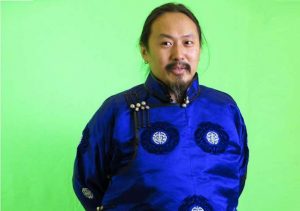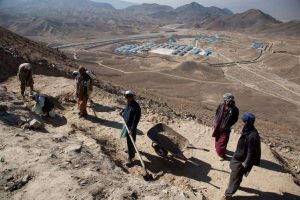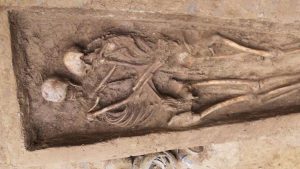Dhammapīti sukhaṁ seti, vippasannena cetasā
Ariyappavedite dhamme, sadā ramati paṇḍitoHe who imbibes the Dhamma abides in happiness with mind pacified;
(Verse 5, Paṇḍita Vagga, Dhammapada)
the wise man ever delights in the Dhamma revealed by the Noble Ones.
Thailand is an important Theravāda country in Southeast Asia. The population of the former Kingdom of Siam is roughly 94 per cent Buddhist. Because of this impressive number of Buddhist followers, some foreigners call Thailand the Land of Yellow Robes. Steeped in their faith in the three treasures, Thai devotees and practitioners continue to honor and cherish their Buddhist heritage, complete with its glorious culture and rich traditions from centuries past.
Venerable Chaokhun Ajahn Medhīvajirasobhaṇa or Ven. Phra Rājavajirapaṇḍita, widely known as Phra Maha Pranom Dhammālaṅkāra (or just Ajahn Pranom), is a leading monk in the Thai sangha. Ajahn Pranom is the abbot of Wat Chak Daeng, a prominent monastery in Samut Prakan Province. Phra Pranom entered the monastic order early in life. He not only engaged himself in deepening the practice of vinaya (monastic rules), he also mastered Pali. Pāli bhāṣā (scriptural language) is the sacred language of Theravāda Buddhism. The core text, the Tipiṭaka, is compiled in Pāli. Because of his deep understanding of Pāli, Ajahn Pranom is respected as an expert on the Tipiṭaka. He is skilled in the tripartite division of pariyatti (theory of Buddhist doctrines), paṭipatti (the practice of Dhamma), and paṭivedha (insightful exploration of the Dhamma).

Ajahn Pranom tirelessly teaches the Buddhadhamma to monks and devotees. His thoughtful movement has been inspiring devotees to learn the Dhamma in the Pāli language. At the request of his devotees, Ajahn Pranom used to come to central Bangkok to offer a unique course at the head office of Standard Chartered Bank each week, usually on Wednesday evenings. A group of Dhamma seekers from professional backgrounds came to these auspicious meet-ups; which were known as the Visuddhimagga Group. Visuddhimagga is a Pāli word meaning the path of purification. Buddhaghosa, one of the most important ancient scholars of Theravāda Buddhism, compiled a text of the same name, Visuddhimagga, in the fifth century BCE.
Before starting his regular Visuddhimagga session, Ajahn Pranom would lead the participants to start the session with a recitation of the introductory verses from Buddhaghosa’s work:
Anto jaṭā bahi jaṭā
jaṭāya jaṭitā pajā
Taṃ taṃ gotama pucchāmi
ko imaṃ vijaṭaye jaṭanti
Sīle patiṭṭhāya naro sapañño
cittaṃ paññañca bhāvayaṃ
Ātāpi nipako bhikkhu
so imaṃ vijaṭaye jaṭantiThe inner tangle and the outer tangle
This generation is entangled in a tangle
And so I ask of Gotama this question,
who succeeds in disentangling this tangle?
When a wise man, established well in virtue
develops awareness and understanding
The monk ardent and sagacious,
he succeeds in disentangling this tangle.


Aside from regular Dhamma services at his monastery and beyond, Ajahn Pranom also raises awareness about protecting Mother Earth from plastic pollution. In the name of reducing plastic waste and chemical pollution, he initiated a recycling program in which volunteers make monks’ robes from recycled plastic bottles.
Each day, a large number of devotees and followers bring recycled plastic bottles to his monastery, Wat Chak Daeng. Like a bodhisattva, Ajahn Pranom tirelessly works to overcome the global ecological crisis by making a difference at a local level. Ajahn Pranom does not limit himself to scriptural knowledge and is socially engaged in the protection of nature. This is why I like to call him an altruistic-hearted ecosattva, which is a well-known word among the Western engaged Buddhist movement as well. In his ecosattva movement to reduce plastic waste, Ajahn Pranom said to his followers: “If we don’t recycle plastic, it will end up in the ocean. Then it will be eaten by dugongs, dolphins, whales, and other animals. And they will die from this!”
I offer a deep bow of respect and gratitude to Ajahn Pranom for all his kind teachings, and for continuing to support our sentient brethren and a green planet like a true ecosattva. Recognizing the altruistic contributions of Ajahn Pranom, the king of Thailand, Rama X, conferred on him two honorary titles: redhīvajirasobhaṇa and rājavajirapaṇḍita. I have no doubt that the legacy of this influential monk and his ecosattva movement will inspire local and global Buddhists, as well as non-Buddhist practitioners.
May Ajahn Pranom live long in sound health. May he and his legacy inspire sentient beings on the path to individual and global liberation.
See more
Phra Medhīvajirasobhaṇa, Abbot, Wat Chak-daeng, Samutprakarn, Thailand for VESAK 2021 วิสาขบูชา๒๕๖๔ (YouTube)
How a Buddhist Monk Is Turning Plastic Into Robes (YouTube)
The Buddhist monks recycling plastic bottles into robes (YouTube)
“จีวรรีไซเคิล” หนึ่งโครงการดีๆ แห่ง “วัดจากแดง” (Win News)
Meet the Buddhist monks recycling plastic bottles into robes (Yahoo! News)
Related news from BDG
Khyentse Foundation Establishes New Chair in Buddhist Studies at International Buddhist College, Thailand
Ancient Buddhist Stupa Visible as Mekong River Levels Recede in Thailand
















